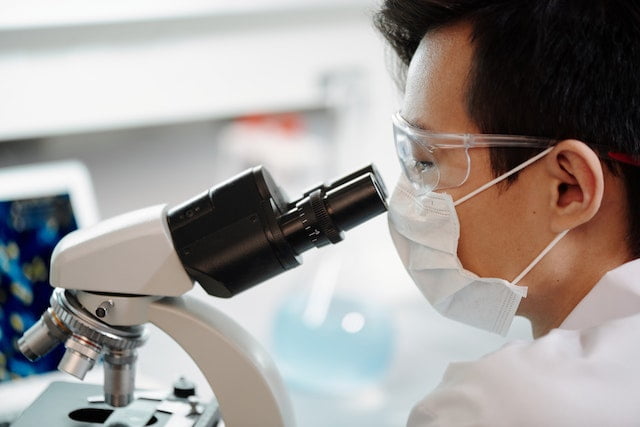Understanding Aging: More Than Just Time Passing
Aging is an inevitable part of life. It’s a process that everyone goes through as they get older. However, recent scientific advancements suggest that this might not always be the case. In the next 50 years, we might see treatments that can significantly slow down or even reverse the effects of aging. The goal is to maintain the vitality and health of youth for an extended period. This concept, often likened to the fictional character Peter Pan, is increasingly becoming a scientific possibility.
The Malleability of Aging
The rate at which we age is not set in stone. Science is continuously revealing ways to slow down our biological clocks. This notion that aging is malleable is a breakthrough in understanding how our bodies work. It suggests that the future might hold secrets to keeping us young longer.
The Financial Attraction of Anti-Aging Research
The potential to reverse aging has attracted substantial investment from big players in the industry. There is a significant amount of money being poured into research focused on age-reversal. This influx of capital indicates the level of confidence and interest in the scientific community and the private sector regarding the possibility of controlling aging.
Can We Stop Aging?
From Hope to Promise in Anti-Aging Research
The field of anti-aging research has evolved from mere hopeful speculation to a more promising and realistic endeavor. Researchers are exploring various ways to slow aging significantly, aiming to prevent age-related diseases and extend healthy lifespans. This shift from hope to tangible results marks a pivotal change in how we approach aging.
The Potential Side Effect: Extended Lifespan
A fascinating side effect of slowing down aging is the potential extension of human lifespan. By tackling the root causes of age-related diseases, we inadvertently increase the potential for longer lives. This possibility opens new doors for how we view life and aging.
Genetics and Aging: Unlocking Longevity Secrets
The Longevity Genes Project
The Albert Einstein College of Medicine in New York is at the forefront with its Longevity Genes Project. This project studies individuals who have lived significantly longer than average, like Gitty, who is 98 years old. By examining these individuals, researchers aim to unlock the secrets of their longevity.
The Role of Genetics in Aging
Scientists have discovered several genes in centenarians that contribute to their long lives. Understanding and potentially replicating these genetic factors could pave the way for treatments or interventions that mimic these effects, thereby slowing aging in the broader population.
The Science Behind Aging
Understanding the Biological Basis of Aging
Aging is the result of molecular and cellular damage accumulating over time. This damage gradually impairs bodily functions, eventually leading to death. Various theories attempt to explain why we age, including the disposable-soma theory, which suggests an evolutionary trade-off between repair and reproduction.
Aging in Different Species
Not all animals age the same way. For instance, Aldabra giant tortoises exhibit minimal aging biologically. Understanding why some species age differently can provide valuable insights into our aging process.
Historical Breakthroughs in Aging Research
Clive McCay’s Pioneering Work
In the 1930s, Clive McCay’s research at Cornell University demonstrated that aging could be slowed. He found that a near-starving diet could significantly extend the lifespan of rats, a concept that has since been proven in various species.
The Disposable-Soma Theory and Dietary Restriction
The idea of dietary restriction fitting with the disposable-soma theory suggests that in times of scarcity, the body prioritizes survival over reproduction, thereby prolonging life. This discovery laid the foundation for understanding how environmental factors like diet could influence aging.
Genetic Discoveries in Aging
Cynthia Kenyon’s Groundbreaking Research
In the 1990s, Cynthia Kenyon’s work with roundworms showed that genetic changes could significantly extend lifespan. This discovery highlighted the role of genetics in aging and opened up new avenues for research in this field.
The Potential of Genetic Manipulation
While directly altering human genes is irreversible and risky, manipulating how genes are expressed (epigenetics) offers a safer and potentially effective way to slow aging. Epigenetic reprogramming, particularly using Yamanaka factors, has shown promise in turning back the biological clock in cells.
The Future of Anti-Aging Treatments
The Rise of Epigenetic Treatments
The growing field of epigenetics, focusing on how genes are read and expressed, is attracting substantial research funding. Startups in Silicon Valley and beyond are exploring ways to modify the epigenome to slow down aging.
Existing Drugs with Anti-Aging Potential
Several existing drugs, like metformin and rapamycin, have shown potential in slowing aging. These drugs, initially developed for other purposes, have been found to have beneficial effects on lifespan and health in various studies.
The Social and Economic Implications of Anti-Aging
The Demographic Shift and Its Challenges
The world is experiencing a demographic shift, with fewer young people supporting an increasing elderly population. This change makes it crucial for older individuals to remain healthy and active for longer. Anti-aging research could play a vital role in addressing these societal challenges.
Economic Considerations
The economic implications of extending healthy lifespans are significant. Reducing the medical expenses associated with age-related diseases and maintaining a more vibrant, productive older population could have a profound impact on economies worldwide.
A New Era in Aging
As we advance in understanding and manipulating the aging process, the prospect of a future where we grow old without the traditional consequences of aging becomes more realistic. This new era of anti-aging research promises not only extended lifespans but also improved quality of life for billions worldwide.




























